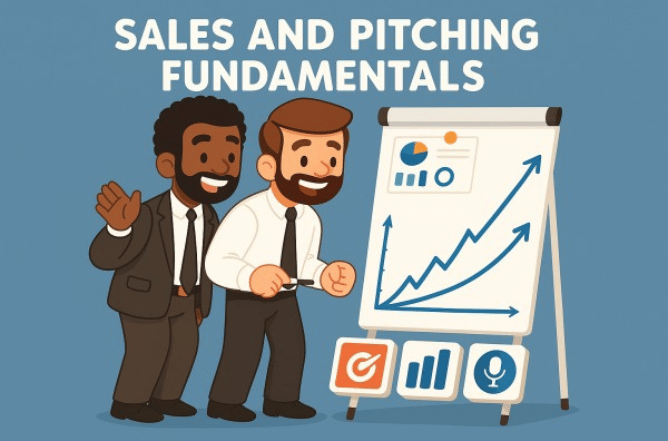
We’ve all seen it, someone giving a pitch super fast, full of big words like AI-powered, best UI, future-ready and more. But then, someone calmly asks, “Okay, but what exactly do you do?” And boom! There is silence.
Because the truth is, it’s not about how excited or loud you are. What really matters is how clearly you explain why you or your product actually matter. This is the foundation of sales and pitching fundamentals, it's not about hype. It’s about trust.
Or like Mr. Zero says: “Tez baat karne se deal nahi banti. Client ko chahiye clarity aur confidence.” You can have all the energy in the world, but if your message isn’t clear, it won’t land. People don’t buy just because you’re excited. They buy when they understand and trust what you’re offering.
Crafting a Value Proposition
Your value proposition is basically your promise. It’s you saying, "Here’s how I make your life better and here’s why you should pick me over the rest." It’s not a feature list or a hype session. It’s the sweet spot where what you offer perfectly matches what your customer needs.
A good value proposition doesn’t just sound fancy, it feels real. It tells a customer, without any confusion, why their life gets easier, faster, cheaper, or better because of you. If they have to guess, you’ve already lost. The best value propositions are short, sharp, and laser-focused on the result for the customer. It’s not what you do, it’s what you solve. If you can answer “Why should anyone care?” in one honest sentence, you’re winning.
Elevator Pitch Practice
Your elevator pitch is like a verbal trailer of your story. No one’s got time for a five-minute life story. You’ve got 20 to 30 seconds max to make someone lean in and want more. A strong pitch should sound natural, not memorized. Think of it like you’re excitedly telling a friend about the cool thing you're working on.
A great elevator pitch hits three points: what you do, who you help, and why it matters, all without making the other person zone out. Practicing your pitch until it sounds casual is key. Because when you randomly meet a dream client or investor at a coffee shop, you can’t say, “Give me a few days to prepare.” You have to be ready, confident and clear, right then and there. That’s the power of knowing your sales and pitching fundamentals.
Handling Objections and Rejections
Brushing off concerns with fake positivity or ignoring tough questions will make you seem fake. Instead, lean in. Listen fully. Show respect. If they think the timing’s wrong, stay connected and offer helpful insights until it’s right.
Handling rejections the right way isn't just about saving a deal, it's about building your reputation in business development as someone who’s real, trustworthy and worth doing business with.
Conclusion
Sales and pitching fundamentals are not about throwing around fancy words or hyping yourself up. They are about being clear, confident, and real. When you know your value proposition, deliver it smoothly and handle doubts with calm and honesty, you don’t just sell, you build real trust.
In business development, trust is not just a nice-to-have, it is everything. Master the basics, show up prepared and the results will follow.

 Wanna stay updated about courses
Wanna stay updated about courses